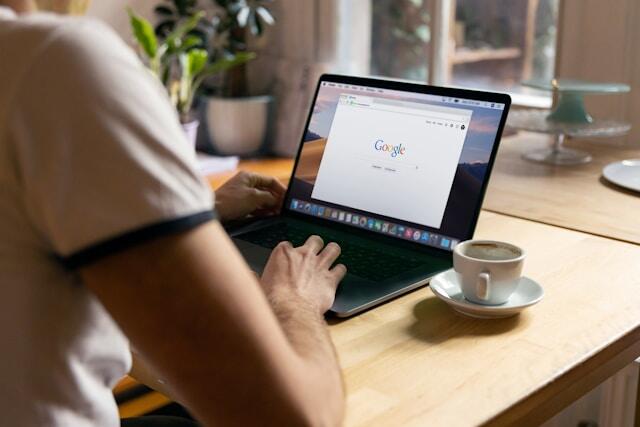Beginner's Guide to Higher Rankings
I get it. Really, I do. You're pouring your heart and soul into your business, wearing what feels like a hundred different hats every single day. And just when you think you've got a handle on things, someone mentions "SEO," and suddenly you feel like you're back in school, staring at a pop quiz you didn't study for. Sound familiar?
I've been there. Trust me, the world of search engine optimization can seem intimidating, full of jargon and technicalities that make your head spin. But here's the good news: it doesn't have to be that way. Not at all. In fact, think of this as our personal chat about SEO for small business – a "come alongside you" guide designed to demystify it all and help you take those crucial first steps.

Photo by Firmbee.com on Unsplash
The Big Question: Why Does My Small Business Even Need SEO?
You might be thinking, "Do I really need to worry about Google and all that when I'm just trying to keep the lights on?" And that's a fair question! However, consider this: when you're looking for a new coffee shop, a reliable plumber, or even a unique gift, what's the first thing most of us do? We pull out our phones and type it into a search engine, right?
Ultimately, SEO for small business is about making sure your business shows up when people are actively searching for what you offer. It's about being discovered by potential customers who are already looking for you. For instance, if you're a baker specializing in gluten-free cupcakes, you want to be found when someone types "gluten-free cupcakes [your town]" into Google. Furthermore, without a solid small business SEO foundation, you're essentially a hidden gem – and unfortunately, hidden gems don't often get discovered by sheer luck online.
Let's Break It Down: What Even Is SEO?
In essence, SEO (Search Engine Optimization) is the process of improving your website's visibility when people search for products or services related to your business on search engines like Google. Think of it as making friends with Google's algorithm. You're essentially sending signals to Google that say, "Hey, my website is relevant and valuable for these specific searches!"
Now, I know that sounds a bit technical, but let's simplify it. When we talk about SEO for small business, it’s about two main things:
- Making your website easy for search engines to understand. This is like organizing your pantry so you can easily find what you need.
- Making your website valuable and trustworthy for people. This is like making sure your pantry is stocked with quality ingredients your family will love.

Photo by Towfiqu barbhuiya on Unsplash
The Core Concepts: Your SEO for Small Business Starter Pack
Let's dive into some of the key concepts you'll hear about as you start your journey into SEO for small business. Don't worry, we'll keep it simple!
1. Keywords: The Words Your Customers Use
Imagine you own a quaint little bookstore. When someone is looking for a new mystery novel, what do they type into Google? Probably something like "best mystery novels," "new thrillers," or "bookstore near me." These are keywords!
In particular, keywords are the words and phrases people use when they search online. Your job, as a small business venturing into SEO, is to figure out what those words are and then strategically use them on your website. For example, if you sell handmade jewelry, you might want to use keywords like "unique handmade necklaces," "artisan earrings," or "custom jewelry gifts." Importantly, don't just stuff keywords everywhere! Google is smart, and that's called "keyword stuffing," which can actually hurt your rankings. Instead, use them naturally in your website content, blog posts, and product descriptions.
2. On-Page SEO: What's On Your Website
This refers to all the things you can do on your actual website to improve its search ranking. It's about making your content clear, relevant, and easy for both users and search engines to understand. This is a foundational part of any SEO strategy for small business.
Think about it:
- Content: Are you providing valuable, helpful information to your visitors? This is huge! High-quality content that answers questions and solves problems is king. Moreover, if your content is engaging and useful, people will spend more time on your site, which signals to Google that your site is valuable.
- Page Titles and Meta Descriptions: These are the little snippets of text that show up in search results. Your page title is the blue clickable link, and the meta description is the short summary below it. They need to be compelling and include your keywords to encourage clicks.
- Headings (H1, H2, etc.): Just like in a well-written book, headings break up your content and make it easier to read. They also help search engines understand the structure and main topics of your page.
- Images: Don't forget to optimize your images! This means using descriptive file names and "alt text" (a short description of the image) so search engines can understand what your images are about.
- Internal Linking: This is simply linking from one page on your website to another. For instance, if you have a blog post about the benefits of organic produce, you might link to your "Organic Vegetables" product page. This helps Google understand the relationships between your pages and helps users navigate your site.
3. Off-Page SEO: What Happens Off Your Website
This encompasses all the activities that happen away from your website but still impact your search rankings. The biggest player here is backlinks. Understanding this is key for any small business owner looking to build online authority through SEO.
After all, a backlink is simply a link from another website to yours. Think of it like a vote of confidence. If a reputable website links to your site, it tells Google that your website is trustworthy and authoritative. For instance, if a local food blogger reviews your restaurant and links to your menu page, that's a valuable backlink. However, not all backlinks are created equal. You want high-quality backlinks from relevant and authoritative websites, not spammy ones. Indeed, focusing on earning these natural, valuable links is key. This could involve guest posting on other blogs, getting mentions in local news, or collaborating with other businesses.
A Final Thought: Patience and Persistence for Your Small Business SEO Journey
Look, I know this can feel like a lot to take in when you're just starting out with SEO for your small business. But here's the honest truth: SEO is a marathon, not a sprint. You won't see overnight results, and that's perfectly normal. However, by taking consistent, small steps, you will absolutely start to see improvements over time.
Instead of feeling overwhelmed, try to view SEO as another way to connect with your customers and serve them better. After all, isn't that what we're all trying to do as small business owners?
Remember, you're not alone in this journey. We're all learning and growing together. If you've got questions about small business SEO, or even just want to share your SEO wins (big or small!), I'm here to listen. Let's make sure your amazing business gets found by the people who need it most.
Amber
Main photo by NisonCo PR and SEO on Unsplash
Ready to find out more?
Request our no-obligation packages and prices via email. If you want to take the first steps, simply reply to the email we send. It's as simple as that!
